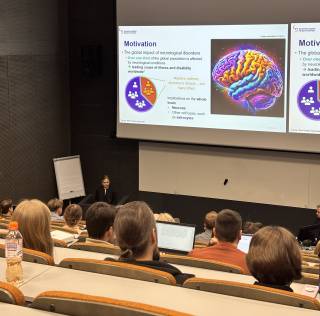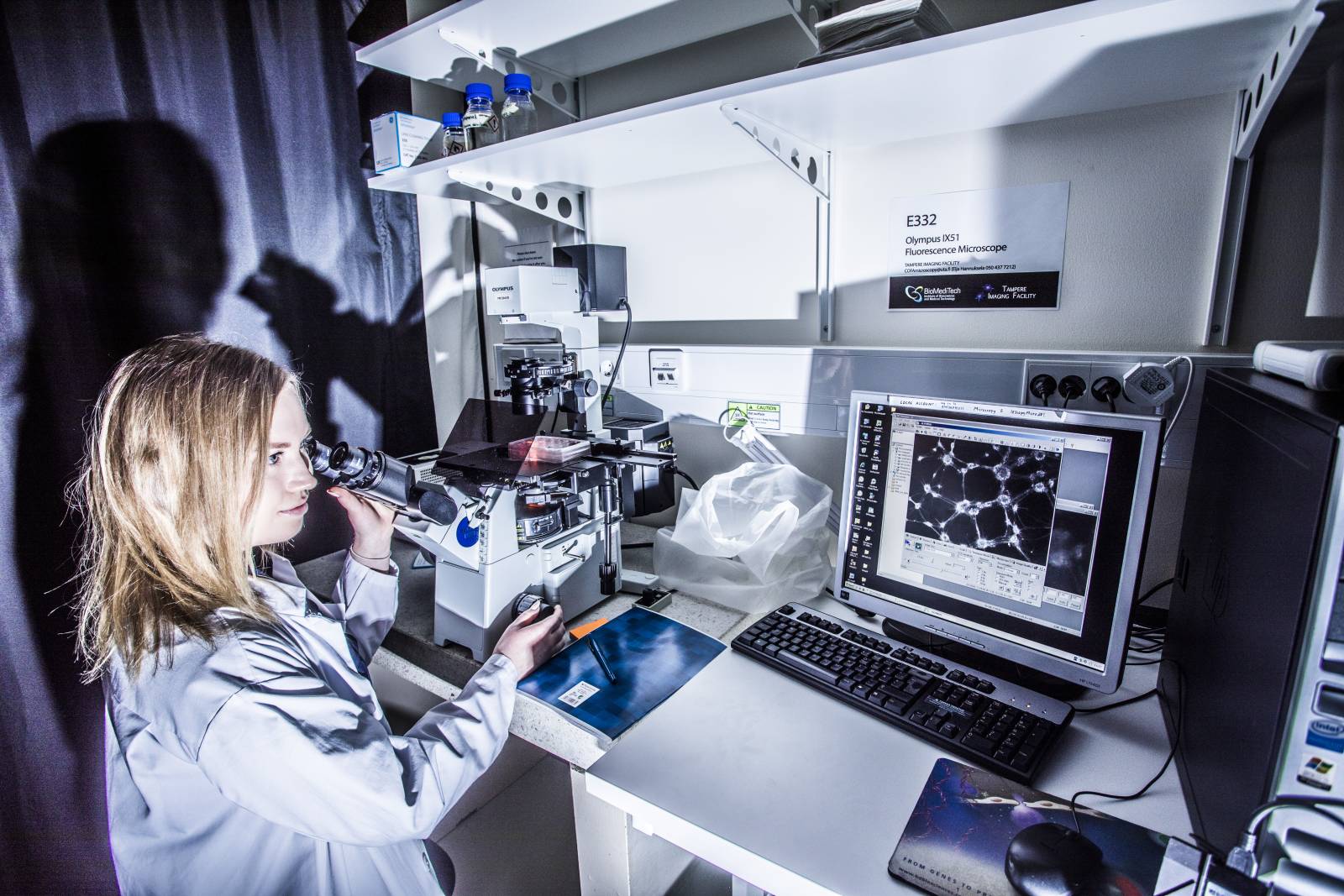We asked Ahtiainen a few questions to get insight into the dissertation journey:
How did you end up starting your PhD at Jari Hyttinen’s group?
I started working in Jari’s group as a master’s student in 2018. After graduating with a Master of Science degree, I continued with my PhD. I had amazing opportunities in Jari’s group already as a master’s student, such as conducting the experimental part of my master’s thesis in Australia and New Zealand, so I was eager to continue working in the group. Also, neurons as a cell type and observing their electrophysiological activity with microelectrode arrays were fascinating to me, and I wanted to continue working on this topic.

What did you study for your master’s degree?
I studied biotechnology here at Tampere University, with a major in cell technology.
What was most difficult in your PhD?
The most difficult part of my PhD was managing the scope of my research topic — I use multiple different methodologies, including electrophysiological and biochemical assessments, several different culture conditions incorporating various cell types, as well as multiple modulation methods, including numerous chemical compounds and electrical stimulation.
Your biggest PhD moment?
I think my biggest PhD moment will be the defense itself, but I guess you mean up until now. My biggest moment was probably my first PhD publication, followed closely by receiving my first personal grant right after, which felt really validating.
What would you like to see your PhD work evolving into?
I would like to see even more cell types included in the cultures, as well as additional assays conducted to further investigate the mechanisms behind the observed phenomena. It would also be exciting if it evolved to include human-derived cells and possibly 3D applications.
What would you tell the “younger Annika”, when starting the PhD journey?
Do not stress over things you can’t control!!!
What does your future hold?
I hope my future holds exciting opportunities. For now, it’s hard to see very far ahead, as I am quite focused on my defense. I will continue as a postdoc in Jari’s group for at least a few months after my defense, so I’m glad I’ll have some time to consider my options.
Ahtiainen’s Opponent will be Professor Anna Herland from KTH Royal Institute of Technology, Stockholm, Sweden. The Custos will be Associate Professor Jarno Tanskanen from Tampere University.

